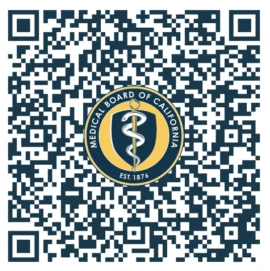Feeling like a balloon that’s always on the verge of popping can be frustrating, especially when you can’t pinpoint the cause.
You’ve tried adjusting your diet, staying hydrated, and even managing stress levels, but the bloating persists.
Could there be an underlying reason behind why you’re suddenly feeling bloated all the time?
Dietary Factors
If you experience sudden bloating, consider that dietary factors may be the culprit. Your body reacts to the foods you eat, and certain choices can lead to uncomfortable bloating. One common dietary factor is the consumption of gas-producing foods like beans, broccoli, and carbonated beverages.
These foods can cause excess gas to build up in your digestive system, leading to bloating and discomfort.
Moreover, eating too quickly or overeating can also contribute to bloating. When you eat too fast, you swallow air along with your food, which can accumulate in your stomach and intestines. This air trapped in your digestive tract can result in bloating. Additionally, overeating puts extra pressure on your stomach, causing it to expand and potentially leading to that uncomfortable bloated feeling.
To combat bloating caused by dietary factors, try to identify which specific foods trigger your symptoms and avoid them. Eating slowly, chewing your food thoroughly, and practicing mindful eating can also help prevent bloating.
Remember, making small changes to your diet and eating habits can make a big difference in reducing bloating caused by dietary factors.
Food Intolerances
Considering dietary factors like gas-producing foods and overeating, now turn your attention to food intolerances as another potential cause of sudden bloating. Food intolerances occur when your body has difficulty digesting certain foods, leading to digestive discomfort and bloating.
Here are three key points to consider:
- Common Culprits: Some common food intolerances that can cause bloating include lactose intolerance, gluten intolerance, and fructose malabsorption. These conditions can lead to excess gas production, abdominal distension, and discomfort.
- Symptoms: Symptoms of food intolerances may include bloating, gas, diarrhea, stomach cramps, and nausea. These symptoms often occur shortly after consuming the problematic food.
- Identification: Identifying food intolerances can be challenging as symptoms can vary widely between individuals. Keeping a food diary, undergoing elimination diets, or seeking medical advice for tests like lactose intolerance tests or gluten sensitivity tests can help pinpoint the culprit foods.
Being mindful of your body’s reactions to different foods and seeking professional guidance can help you identify and manage food intolerances effectively, reducing bloating and discomfort.
Digestive Disorders
Digestive disorders can disrupt your gastrointestinal system’s normal functioning, leading to various uncomfortable symptoms. Conditions like irritable bowel syndrome (IBS), gastroesophageal reflux disease (GERD), and inflammatory bowel disease (IBD) can cause bloating, gas, abdominal pain, diarrhea, or constipation.
If you have IBS, you might experience cramping, bloating, and changes in bowel habits. GERD can lead to heartburn, chest pain, and difficulty swallowing. In contrast, IBD, which includes Crohn’s disease and ulcerative colitis, causes inflammation in the digestive tract, resulting in severe abdominal pain, diarrhea, fatigue, and weight loss.
These disorders can be triggered by various factors, including stress, certain foods, genetics, or infections. Managing digestive disorders often involves dietary changes, stress reduction techniques, medications, and sometimes, surgery. If you suspect you have a digestive disorder, it’s crucial to consult a healthcare provider for proper diagnosis and treatment to alleviate your symptoms and improve your quality of life.
Hormonal Changes
Hormonal changes can significantly impact your body’s systems and functions, leading to various symptoms and health issues. These fluctuations in hormone levels can contribute to bloating and discomfort that you may be experiencing consistently.
Here are three key ways hormonal changes might be causing your bloating:
- Estrogen Dominance: An imbalance in estrogen levels, where estrogen is higher relative to progesterone, can lead to water retention and bloating. This imbalance commonly occurs during perimenopause, menopause, or due to certain medications.
- Thyroid Imbalances: Thyroid hormones play a crucial role in regulating metabolism. Hypothyroidism, where the thyroid is underactive, can slow down digestion and cause bloating, while hyperthyroidism, where the thyroid is overactive, can lead to increased gut motility and bloating.
- Stress Hormones: Elevated levels of cortisol, the stress hormone, can disrupt digestion, cause inflammation in the gut, and alter the gut microbiome, all of which can contribute to bloating. Managing stress levels is essential in addressing this hormonal cause of bloating.
Stress and Anxiety
Feeling overwhelmed by stress or anxiety can have a significant impact on your digestive system, potentially leading to uncomfortable bloating. When you’re stressed, your body releases hormones like cortisol, which can slow down digestion and lead to bloating and discomfort. Additionally, during periods of heightened stress or anxiety, you may be more prone to poor eating habits, such as consuming high-fat or sugary foods, which can further exacerbate bloating.
Moreover, stress and anxiety can disrupt the balance of bacteria in your gut, leading to digestive issues like bloating, gas, and abdominal discomfort. The gut-brain connection plays a crucial role in how your body responds to stress, and this can manifest physically in the form of bloating. Finding ways to manage your stress levels, such as practicing relaxation techniques, exercising regularly, and ensuring you have time for self-care, can help alleviate bloating caused by stress and anxiety.
Lack of Physical Activity
When you lead a sedentary lifestyle, lack of physical activity can contribute to bloating and discomfort in your body. Here’s why:
- Sluggish Digestion: Without regular movement, your digestive system can slow down, leading to constipation and bloating. Physical activity helps stimulate the muscles in your digestive tract, aiding in more efficient digestion and reducing bloating.
- Fluid Retention: Sitting for long periods can cause fluid to pool in your lower extremities, leading to bloating and swelling. Engaging in physical activity helps improve circulation and reduce fluid retention, decreasing bloating symptoms.
- Muscle Weakness: A lack of physical activity can result in weakened abdominal muscles, which are essential for supporting digestion and maintaining proper posture. Weak muscles can contribute to digestive issues like bloating. Incorporating exercises that target your core can help strengthen these muscles and alleviate bloating discomfort.
Dehydration
Dehydration can lead to bloating and discomfort in your body due to its impact on proper fluid balance. When you don’t drink enough water, your body retains fluid as a defense mechanism, causing bloating. This retention can make you feel swollen and puffy, especially in the abdomen area. Additionally, dehydration can slow down your digestion, leading to constipation, which further contributes to bloating.
To combat dehydration-related bloating, increase your water intake throughout the day. Aim for at least 8-10 glasses of water daily to help maintain proper hydration levels and support healthy digestion. Limiting dehydrating beverages like alcohol and caffeinated drinks can also help prevent bloating.
If you suspect dehydration is causing your bloating, pay attention to other signs of inadequate fluid intake such as dark yellow urine, dry mouth, or fatigue. By prioritizing hydration and making conscious efforts to drink more water, you can alleviate bloating and promote overall well-being.
Medications and Supplements
If you’re taking medications or supplements, be aware that certain ones can also contribute to bloating and discomfort in your body. It’s crucial to understand how these medications or supplements may be affecting your digestive system.
Here are three common culprits that could be causing your bloating:
- Antibiotics: Antibiotics are known to disrupt the natural balance of bacteria in your gut, leading to bloating, gas, and sometimes even diarrhea. If you’re on a course of antibiotics, consider incorporating probiotics to help restore the balance of good bacteria in your gut.
- Nonsteroidal Anti-Inflammatory Drugs (NSAIDs): NSAIDs like ibuprofen or aspirin can irritate the lining of your stomach, leading to bloating, indigestion, and even ulcers in some cases. If you frequently take NSAIDs, talk to your healthcare provider about potential alternatives or ways to mitigate the side effects.
- Iron Supplements: Iron supplements are notorious for causing constipation and bloating in some individuals. If you’re experiencing bloating while taking iron supplements, consider speaking to your doctor about adjusting the dosage or trying a different form of iron supplement.
When to contact a professional: Digestive Disease Consultants of Orange County
Wondering about the right time to seek professional help for digestive issues? Connect with the experienced team at Digestive Disease Consultants of Orange County for expert guidance and care. If you’re experiencing persistent bloating, severe abdominal pain, unexplained weight loss, or blood in your stool, it’s crucial to reach out to a specialist promptly. These symptoms could indicate underlying conditions such as inflammatory bowel disease, celiac disease, or even gastrointestinal cancers that require immediate attention.
Digestive Disease Consultants of Orange County offers a range of diagnostic services including endoscopies, colonoscopies, and advanced imaging to accurately assess your digestive health. Their team of gastroenterologists, dietitians, and nurses collaborate to provide personalized treatment plans tailored to your specific needs. Don’t ignore ongoing digestive discomfort or disruptions in your bowel habits; these could be signs of a more serious issue that needs professional evaluation.
Frequently Asked Questions
Can Bloating Be a Sign of a More Serious Underlying Health Condition?
Bloating can indeed signal a more serious health issue. You should consult a healthcare provider if persistent bloating occurs to rule out underlying conditions. It’s crucial to address any potential concerns promptly.
Are There Any Natural Remedies or Home Remedies That Can Help Reduce Bloating?
To help reduce bloating, drink peppermint tea, stay hydrated, and avoid carbonated drinks. Eating slowly, exercising regularly, and managing stress can also aid in reducing bloating. Try these natural remedies to ease discomfort.
How Long Does Bloating Typically Last Before It Should Be a Cause for Concern?
Bloating usually lasts a few hours to a couple of days. If it persists for more than a week or is accompanied by severe pain, sudden weight loss, or blood in stool, it’s best to consult a healthcare provider.
Can Certain Types of Exercise or Yoga Poses Help Alleviate Bloating?
Certain types of exercise, like gentle yoga poses or walking, can aid in reducing bloating by promoting digestion and relieving gas. Stay hydrated and incorporate movement into your routine to help alleviate discomfort.
Is Bloating More Common in Certain Age Groups or Demographics?
As you age, bloating can become more common due to factors like decreased digestive enzymes or hormonal changes. Lifestyle choices, diet, and stress levels can also contribute to increased bloating in certain age groups or demographics.
Conclusion
If you’re constantly feeling bloated, it’s important to consider factors like your diet, food intolerances, and stress levels.
Making small changes like staying hydrated, being active, and managing your stress can help alleviate bloating.
However, if your symptoms persist or worsen, it’s best to consult a professional like the Digestive Disease Consultants of Orange County for further evaluation and treatment.
Don’t ignore persistent bloating – take care of your digestive health!



